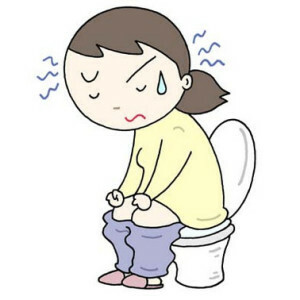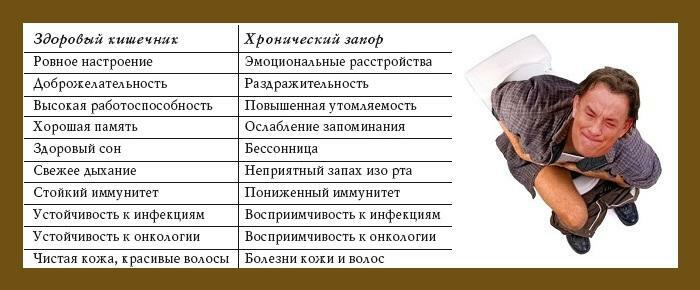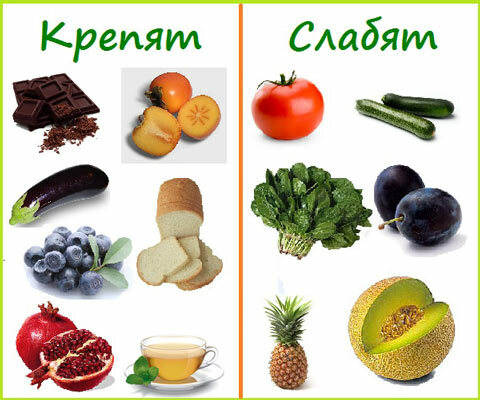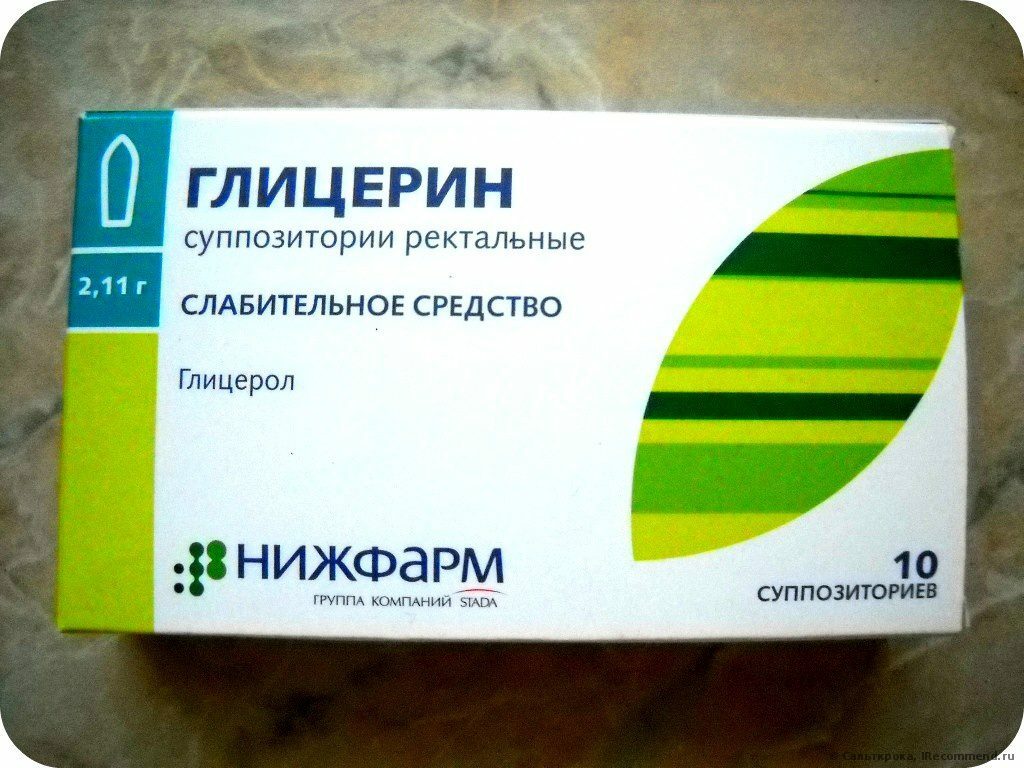Prevention and treatment of permanent constipation
Constant constipation is a delicate, common problem that not only greatly reduces the comfort level of a person's life, but also threatens with possible complications.
Symptoms of permanent constipation
Contents:
- Symptoms of permanent constipation
- Non-pathological causes of constipation
- Pathological causes of constipation
- Prevention and treatment of chronic constipation
Constipation is a commonplace problem that can be faced by everyone - both the child and the adult.
Chronic constipation is a serious ailment, in most cases caused by an incorrect lifestyle, unhealthy habits of a person or abnormalities in the work of the digestive tract.
Constipation can cause both pathological changes( eg, inflammatory processes), and natural causes( eg, hormonal changes in the body).Chronic constipation of any etiology without treatment can lead to a number of complications.
People prone to chronic constipation, who have a bowel movement every 3 days. Normally, a chair in an adult should be 1-2 times a day.

Young children also face the problem of constipation. They can not complain about the uncomfortable sensations, so parents need to follow the chair of their baby.
A newborn baby or infants should be at least twice as fast as a day. When feeding artificial mixes in children under one year, the chair should be at least 1 time per day, and at the age of one to three years - at least five times a week.
With frequent constipation, feces change their structure, become harder and dryer. The texture of the feces is made of many dense formations. Normally, the stool masses should be uniform and soft.
Portions of feces that are given out by the body in one act of defecation can be very small - up to 40 grams( with violations of intestinal motility) or, conversely, discomfort voluminous( when problems with evacuation are caused by other factors).
In case of constipation, a person experiences difficulties during the act of bowel movement:
- the urge to empty the bowels may be rare and insufficient to complete the act;
- the bowel movement is slow, with tension and accompanied by painful sensations. The causes of pain can be as a solid stool structure, injuring the intestinal mucosa and traumatic anal passage, and the size of stool. Soreness also arises from the strain of the muscles of the sphincter;
- with strong constipation attempts to defecate may be unsuccessful, and then the intestine, or not emptied, or only partially emptied, why a person begins to experience a lot of discomfort( weight in the abdomen, swelling, feeling full);
- accumulation of stool in the intestines has a negative effect on the body, causing intoxication, and with chronic constipation and provoking a number of complications.
Often complications of chronic constipation become hemorrhoids or anal fissures.

Non-pathological causes of constipation
The causes of chronic constipation can be conditionally divided into pathological and non-pathological.
For non-pathological reasons, we can refer to changes in the body that arise under the influence of natural processes.
For example, the imbalance of the hormonal background can affect the characteristics of the digestive tract, including provoking a tendency to constipation.
So, a lot of boys and girls in adolescence are faced with the problem of embolism.
During pregnancy and during lactation, adult women also often suffer from constipation, to which hormonal changes are present.
Other non-pathological causes of chronic constipation include a person's lifestyle and habits.
An important role is played by the dietary characteristics:
- the quality of the products, their variety and the saturation with useful substances;
- how often and how much a person eats.
Incorrect mode of sleep and wakefulness, the presence of stress and psychological problems, too, have the appearance of constipation.
Some people under the influence of stress, fastidiousness or under the influence of time pressure from time to time restrain the natural urge of the body, pushing them to the background.
Video:
When this becomes a habit, the defecation process is disrupted, and the urge appears only when the intestine is full.
The stool becomes less and less common, and in such cases, in many cases, the cause of constipation is a cork of solid feces stagnant at the exit from the intestine.
This happens when the stool structure changes with time and prevents a normal act of defecation. So the habit of "accumulating" feces causes frequent constipation.
Another cause of worsening GIT is a sedentary lifestyle.
Under his influence, peristalsis becomes less active, provoking a tendency to accumulate stool.
Peristalsis dysfunction causes atonic constipation. It is for them characterized by soreness in the act of defecation.
Most often constipation is a consequence of a combination of several factors of a non-pathological nature( for example, ill-considered diet, stress and sedentary lifestyle).
Pathological causes of constipation
Pathological causes of constipation include the presence of a pathogenic factor - a disease, a significant disruption in the digestive system or the dysfunction of other organs.
Constant constipation can be either an independent ailment or a symptom of a more serious disease.
Often the presence of permanent constipation in a child indicates a violation of the balance of intestinal microflora.
Video:
Dysbacteriosis negatively affects the work of the entire gastrointestinal tract, including the act of defecation.
Most often, dysbiosis leads to constant constipation in infants due to the vulnerability of their digestive system, which is not yet sufficiently developed, and sometimes even in adults after antibiotic treatment.
Disturbances in the work of the digestive system with too much or, conversely, a small allocation of specific secrets affect the characteristics of food processing, passing through the digestive tract, because of what the structure of the stool changes, causing constipation.
Older people are more likely to do this because of age-related changes and greater exposure to chronic diseases( such as cholecystitis, pancreatitis and others).
For example, about 80% of people suffering from cholecystitis turn to doctors complaining of regular constipation.
Disorders in the endocrine system cause the appearance of a spastic form of constipation. This disturbs the peristalsis, provoking strong spasms of smooth muscles of the intestine and forming spikes.
Video:
Tense, contracting musculature interferes with the natural course of stool, so that the usual act of defecation becomes difficult, and the urge does not always lead to bowel emptying.
A person suffering from a spastic form of constipation is harassed by the uncomfortable sensations in the lower abdomen: bloating, heaviness and spasmodic pain that can continue until the problem is resolved.
The very act of defecation, however, regardless of its "success", usually does not deliver painful experiences.
Prophylaxis and treatment of chronic constipation
Laxatives will help cope with the existing constipation. Considering the way how to get rid of the problem, you can choose between medication and folk remedies.
To soft preparations of cleansing action carry lavish means which cope with a problem delicately, practically not causing spasms and uncomfortable sensations.
A more radical method is to use an enema, but this requires certain skills. In addition, there are a large number of folk recipes that guarantee a laxative effect.
To do this, use and vegetable oils, and prunes, and other natural products.
But the main problem of constantly arising constipation is that having coped with the constipation, you need to think what to do to prevent the recurrence of the disease.
So, the main way to get rid of chronic constipation is to take preventive measures.
Solving the problem requires an integrated approach. First of all, it is worth paying attention to the main factor leading to relapses.
If the cause is pathological, then most likely you will have to seek help from specialists, and then the problem of constipation will pass during the treatment of the underlying disease.

Reducing the likelihood of recurrence of constipation will help revise the lifestyle and eliminate non-pathological factors that contribute to the appearance of constipation.
For some time it is necessary to strictly adhere to the norms of proper nutrition, setting up the work of the gastrointestinal tract.
It is better to eat a variety of food - the diet should include fruits, vegetables, and cereals, necessarily cereals and bran.
Food should not only be useful and nutritious, but it needs to stimulate the digestive system and promote peristalsis.
Favorably on the course of stool in the intestines affect and used with food vegetable oils.
The quality of stools depends on the amount of water consumed by a person. Normally, you should drink about 1.5 - 2 liters of liquid per day.
To eliminate atonic constipation, a lifestyle should contain at least a minimum of physical activity, and stabilization of sleep and wakefulness and a decrease in stress levels will generally have a positive effect on the body.

This will help to cope with the most common causes that provoke the regular occurrence of constipation.
But some problems can not be solved independently. Then it is worthwhile to seek the help of a specialist for more effective measures.


